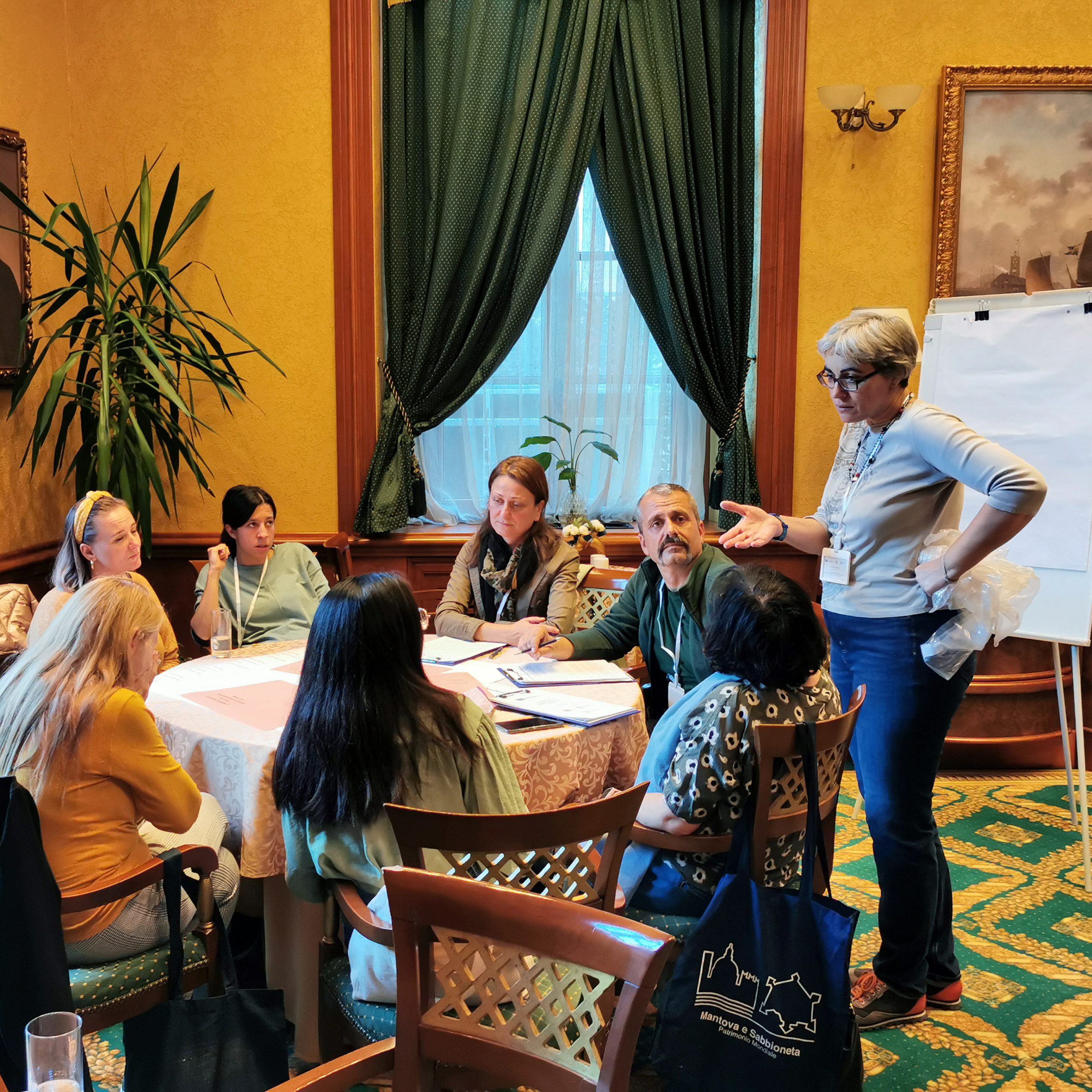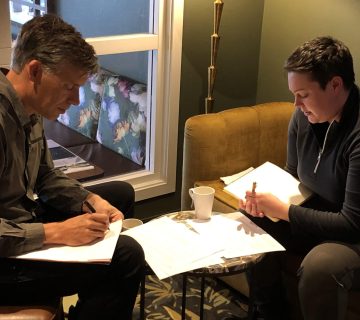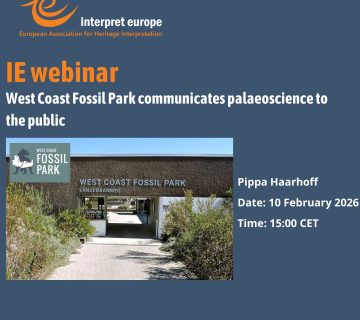As the IE training programme expands to entire regions and the relevance of co-creation increases, the role of trainers as mentors is growing.
A mentor is an experienced advisor fostering personal and professional growth of a mentee. The term originates from Greek mythology: Mentor was the name of a friend of Odysseus. When Odysseus was abroad for 20 years, in the Trojan War and on the Odyssey, Mentor advised his son Telemachus.
Mentoring of IE course participants doesn’t last as long as that, but IE trainers need to be good mentors for two reasons:
- IE seeks to encourage and enable people to interpret more on their own in order to grow people’s mindfulness through heritage. Consequently, IE trainers when acting as mentors should encourage and enable interpreters to facilitate this process.
- IE recently extended its training portfolio from teaching about interpretive services and plans to supporting the co-creation of interpretive strategies for entire regions. IE trainers as mentors play a critical role in this.
The key output of IE’s certification courses are homework assignments in which participants transfer the newly acquired knowledge and skills to their own areas. But besides this output the process plays an increasingly important role.
On the one hand, it includes the experiences participants can take away for their personal growth. On the other hand, it grows the participants’ competences for their career development, not only regarding exchange with guests (e.g. in encouraging and facilitating dialogue in interpretive walks) but also with local stakeholders (e.g. in negotiating narratives when co-creating interpretive plans).
So far, the time available for the IE Certified Interpretive Trainer (CIT) course was too short to pay tribute to this increased demand. But since the course has now grown into a full 40-hour course, we can also include mentoring as a session.
We don’t start from scratch. A critical prerequisite is that, although IE trainers usually don’t have a permanent working relationship with their participants (e.g. they are not their superiors), due to the exclusively face-to-face courses, they first experience their mentees personally. This extends over five days in formal and casual settings, alone and in collaboration with others, in successes and failures, under time pressure and in exam situations. Our trainers also teach peer reviewing throughout all our courses. From the very beginning, participants are encouraged to provide feedback and to critically examine their work results together without flattery. This is only possible when the exchange is based on trust, fairness, and goodwill; qualities we systematically foster through our methodology. After introducing the IE Certified Interpretive Planner (CIP) course, we also started to run post-course online meetings to discuss the state of the individual homework assignments, looking for a balance between individual mentoring and group mentoring.
So, what needs to go into the CIT course that is not already good practice? At our recent summer school we collected hints from our trainers on what knowledge and skills are needed, what values we should foster and what practical points and potential pitfalls need to be taken into account. Based on the topics our trainers brought together, we are now discussing what we need to research further, what should go into a dedicated session on mentoring, and how we can more organically integrate the subject in the trainer course, from where it will hopefully trickle down into all IE training events and beyond.
We now have six months to develop this. The new elements will then be introduced to our trainer candidates in the CIT course in February and shared with our active trainers at the next summer school.
Thorsten Ludwig (MSc Interpretation) first studied archaeology and worked in a national park until 1993, when he founded Bildungswerk interpretation. Together with Valya Stergioti, he has been training all IE trainers since 2016. Within the IE Training Team, he took responsibility for the CIT course.
To cite this article: Ludwig, Thorsten (2025) ‘Mentoring becomes part of our trainer training‘ in Interpret Europe Newsletter 2-2025, pg.9.
Available online: Newsletter summer 2025




